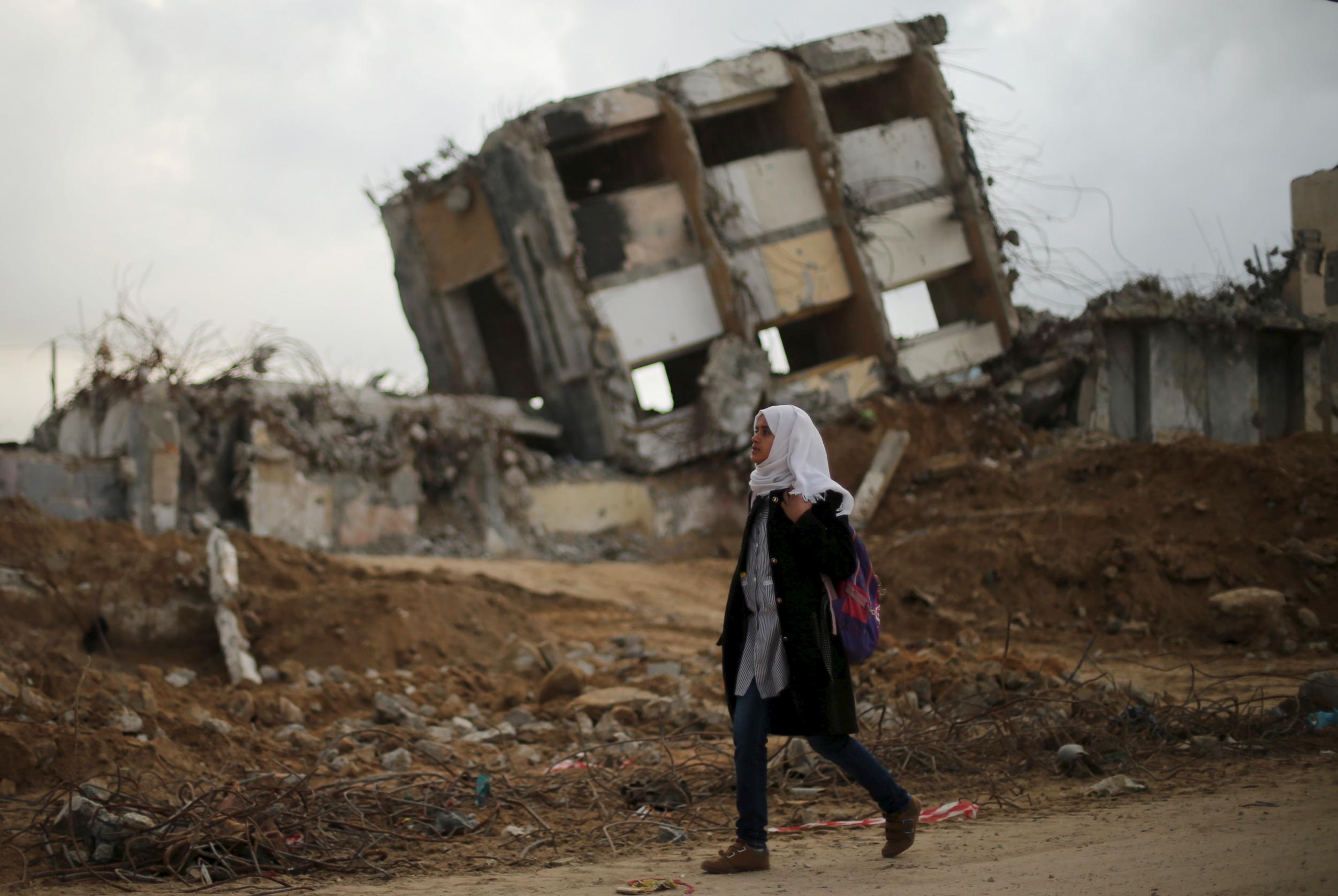Three years after its last war with Israel, Gaza is on the brink of a humanitarian crisis
On the anniversary of Operation Protective Edge – the deadliest Israeli intervention in Gaza to date – life in the Strip is getting worse, not better

“I built a tent and stayed in it for three years, while waiting for Gaza to be rebuilt. We’re still living in it,” father of four Thaer al-Sheesh said.
“We are alive now because death hasn’t bothered to take us yet. It will be way better for us to die, as we won’t face problems anymore.”
It’s been a hot summer in Gaza this year. As temperatures have soared to 40 degrees celsius, the Strip’s burgeoning water and electricity crises have taken their toll, and three years on since Hamas’ last devastating war with Israel, it’s clear things in the Strip are getting worse, rather than better.
When the fighting ended on 26 August 2014 – after the deaths of 2,200 Palestinians and 71 Israelis, among them four civilians – Israel vowed to change course on Gaza, ruled by militant Hamas since the organisation took over the area in 2007.
Yet nothing has come of the promises to increase travel permits to let Palestinians out of the “open-air prison”; fewer people are granted permission to leave the Strip than in 2014, even for medical reasons. The crossing into Egypt also remains closed.
Only a third of the some 11,000 homes destroyed in the 2014 war have been rebuilt, the Norwegian Refugee Council estimated recently. The economic knock-on effects of two wars and ten years of Israeli sea and land blockades have led the Gazan economy to effectively collapse, unemployment is sky-high at 41 per cent, rising to 60 per cent for the young, and the threat of Israel Defence Forces (IDF) air strikes is constant.
For the Strip’s two million residents, traumatised by violence, grinding poverty – with little sign of respite – is a daily reality.
Thanks to the escalating electricity crisis – the result of hiked fuel delivery charges by the rival Palestinian Authority in the West Bank designed to lessen Hamas’ grip in Gaza – the power is often only on for three hours a day. Hospitals have warned the blackouts endanger patients’ lives, and since many households rely on electric pumps for their water, millions have difficulty washing, cooking and doing laundry.
An incredible 96 per cent of Gaza’s water supply is unsafe to drink, as its only aquifer is contaminated by sewage and the coastal enclave’s three desalination plants are in effect offline.
A July report from the UN found that 10 years into the siege, the Gaza Strip is now “unlivable”, and de-developing quicker than expected.
Time has already run out, said Mohammed Samhouri, the report’s author.
“That should give all those with high stakes in the future of the embattled Palestinian coastal enclave, including the Palestinians themselves, a moment for a serious and moral pause,” he wrote. “Unfortunately, we are not there yet.”
Hamas is slowly rebranding in an effort to force the PA into reconciliation talks: earlier this year it unveiled an updated charter which accepted the borders of a Palestinian state within the pre-1967 boundaries for the first time.
But the announced changes are unlikely to be enough: Israeli officials have dismissed the perceived softening of Hamas’s stance.
As its slow war begins to yield the desired effect, there is no reason for the PA to back down, either. Indeed, rumours are swirling in both Gaza and Ramallah that PA President Mahmoud Abbas is considering wresting power away from Hamas by declaring the Strip a “rebel district“, effectively announcing a state of emergency.
If such a scenario came to pass, it’s possible that financial institutions would be shut down and international aid organisations such as UNRWA, the UN branch which oversees efforts to aid Palestinians in the region, would be forced to evacuate.
Such a decision would cause even greater hardship for Gaza’s residents – who may already be at the limits of their endurance. Normally rare protests against Hamas’ rule have been on the rise.
Some are worried the worsening situation will eventually lead to renewed violence between the Strip and Israel. Some 56 per cent of Israelis polled by an Israeli news channel think that war with Hamas is “inevitable” before the end of the year.
“Of all the issues we deal with – the peace process, Palestinian institution building, the region – [the humanitarian electricity crisis] is the one issue that keeps me up at night,” Nickolay Mladenov, the UN’s special coordinator for the Middle East Peace Process, said recently.
“The effects of the crisis are devastating,” he added. “And all of this, at the end of the day, will come back to Israel’s doorstep.”
Join our commenting forum
Join thought-provoking conversations, follow other Independent readers and see their replies
Comments